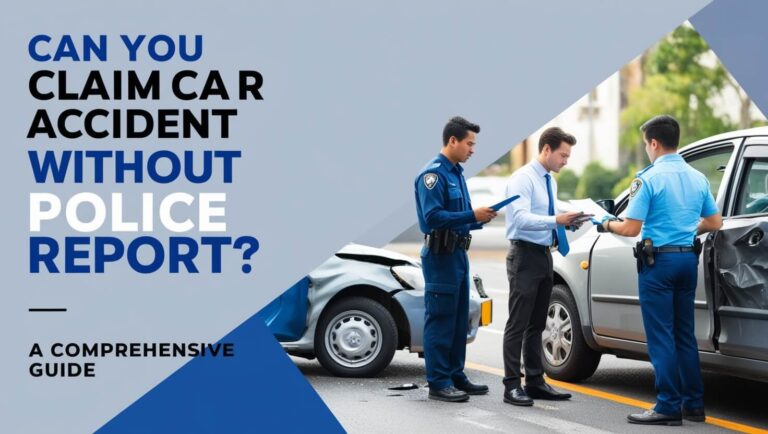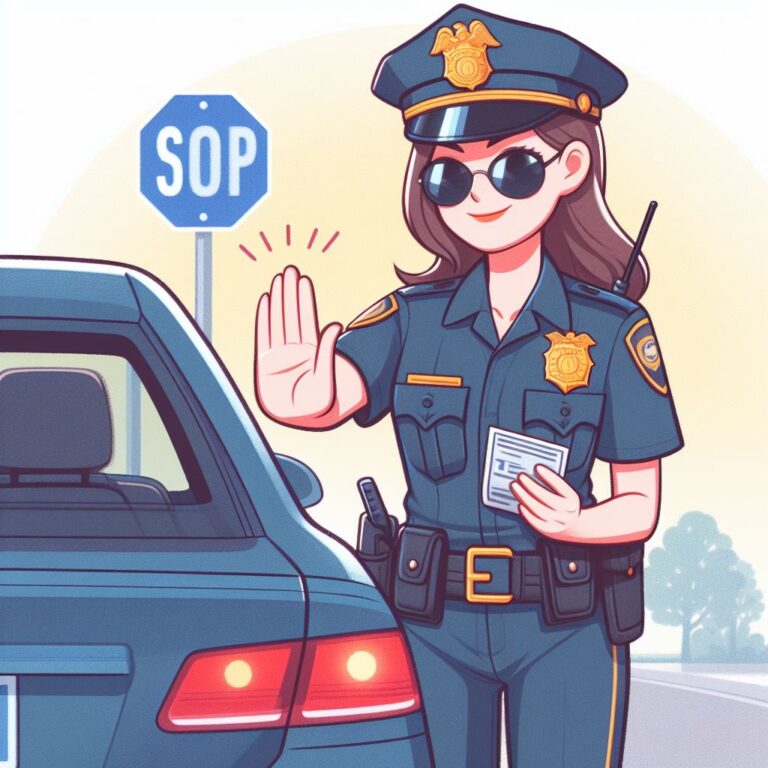What is a Non-Emergency Police Number?

A non-emergency police number is a dedicated phone line to contact law enforcement for situations that are not life-threatening or requiring immediate response. It serves as an alternative to calling 911, which should be reserved for emergencies only.
In this comprehensive guide, we’ll dive deep into understanding non-emergency police numbers, their purpose, and when to use them. We’ll cover scenarios where calling the non-emergency line is appropriate, how to find your local number, what to expect when you call, and more.
Knowing the difference between an emergency and a non-emergency is crucial to ensure that emergency services are available for those who truly need them. By using non-emergency numbers for non-urgent matters, we can help keep emergency lines clear and reduce the strain on 911 dispatchers and first responders.
Situations to Call the Non-Emergency Police Number
While 911 should be called for emergencies that require immediate assistance, there are various situations where reaching out to the non-emergency police line is more appropriate. Here are some common examples:
Minor Crimes with No Immediate Danger: If you’ve been a victim of a non-violent crime, such as theft or vandalism, and the perpetrator is no longer present, you can report the incident through the non-emergency number.
Noise Complaints: Loud parties, barking dogs, or other noise disturbances that are not posing an immediate threat can be reported to the non-emergency line.
Abandoned Vehicles or Parking Violations: Instead of tying up emergency lines, you can contact the non-emergency number to report abandoned vehicles or parking violations in your area.
Non-Urgent Medical Assistance: If someone has fallen or needs medical assistance but is not in a life-threatening situation, the non-emergency line can be used to request help.
General Inquiries or Information Requests: You can call the non-emergency number to ask questions, seek information, or make general inquiries about non-urgent police matters.
What is a Non-Emergency Police Number? Difference Between Emergency and Non-Emergency.

It’s essential to understand the distinction between an emergency and a non-emergency situation to determine the appropriate course of action.
Emergencies typically involve situations where there is an immediate threat to life, safety, or property. Examples include:
- Crimes in progress (robbery, assault, etc.)
- Medical emergencies (heart attack, severe injuries, etc.)
- Fire or gas leaks
- Domestic violence incidents
- Suspicious activities that could lead to harm
In these cases, calling 911 is crucial to ensure a prompt response from emergency services.
Non-emergencies, on the other hand, are situations that do not require immediate attention or intervention. While they may still involve police assistance, there is no imminent danger or risk of harm. Examples include:
- Reporting a past crime with no suspect present
- Filing a complaint about a noise disturbance
- Inquiring about local laws or regulations
- Reporting a found item or lost property
Calling the non-emergency number in these situations allows the appropriate resources to be allocated without overwhelming emergency lines.
Finding Your Local Non-Emergency Number
Non-emergency police numbers vary depending on your location. Here are a few ways to find the non-emergency number for your area:
- Search Online: Search for “[your city/county] non-emergency police number” on your preferred search engine. Many police departments list their non-emergency numbers prominently on their websites.
- Check Local Directories: Non-emergency numbers are often listed in local directories or community resources, such as phone books or municipal websites.
- Dial 311: In some cities, dialing 311 connects you to a non-emergency line for various municipal services, including the police department.
- Common Non-Emergency Numbers: While not universal, some common non-emergency numbers include 10-digit local numbers (e.g., (555) 555-5555) or easy-to-remember numbers like (954) 764-HELP.
It’s a good idea to save or note down your local non-emergency number for future reference.
What to Expect When Calling Non-Emergency
When you call the non-emergency police number, a dispatcher or call-taker will answer your call. Here’s generally what you can expect:
- Provide Details: The dispatcher will ask you to provide details about the situation you’re reporting or the assistance you need. Be prepared to give your location, a brief description of the incident, and any other relevant information.
- Call Prioritization: Based on the details you provide, the dispatcher will prioritize your call and determine the appropriate response. Non-emergency calls are typically handled after any urgent or emergency calls.
- Wait for Response: Depending on the volume of calls and the availability of officers, you may need to wait for a response. The dispatcher will usually provide an estimated wait time or timeframe for when an officer can attend to your matter.
- Officer Dispatch (if needed): If the situation requires an officer’s presence or further investigation, one will be dispatched to your location or the relevant area.
It’s important to remain patient and understand that non-emergency calls may have a longer response time compared to emergency situations.
Online Reporting Options
Many police departments now offer online reporting options for certain non-emergency incidents. This convenient alternative to calling allows you to file a report at your convenience, especially for minor incidents or situations that do not require an immediate response.
Online reporting systems typically cover common non-emergency matters such as:
- Theft or property crime (without suspect information)
- Vandalism or property damage
- Lost property or found items
- Harassment or suspicious circumstances (non-violent)
To utilize online reporting, you’ll need to visit your local police department’s website and look for the online reporting portal or submission form. Keep in mind that some situations may still require a phone call or in-person reporting, depending on the nature and severity of the incident.
When to Call 911 Instead
While non-emergency numbers are useful for various non-urgent situations, it’s crucial to call 911 when facing an emergency or immediate threat. Here are some scenarios where calling 911 is the appropriate course of action:
- Any situation involving violence or the threat of violence
- Medical emergencies (severe injuries, heart attack, stroke, etc.)
- Fires or gas leaks
- Crimes in progress (robbery, burglary, assault, etc.)
- Suspicious activities that could lead to harm or danger
Remember, it’s better to err on the side of caution and call 911 if you’re unsure whether a situation qualifies as an emergency. Dispatchers are trained to assess the situation and provide the appropriate response.
It’s important to note that misusing emergency lines for non-emergencies can result in consequences, such as fines or penalties, as it ties up resources that could be needed for genuine emergencies.
Other Non-Emergency Resources
While non-emergency police numbers are useful for reporting non-urgent matters, there are also other resources available for various non-police-related issues. Here are a few examples:
- Utilities: Contact your local utility companies (electricity, gas, water) to report outages, downed lines, or service issues.
- Road Conditions: Check with your state or local transportation department for information on road conditions, closures, or construction.
- Animal Control: Contact your local animal control service for non-emergency animal-related issues, such as stray animals or noise complaints involving pets.
- Municipal Services: Many cities and towns have dedicated hotlines or online portals for reporting non-emergency municipal issues, such as potholes, street lighting problems, or code violations.
Utilizing the appropriate resources can help ensure your concern or issue is addressed efficiently and by the right authorities or agencies.
Benefits of Using Non-Emergency Numbers
Using non-emergency police numbers offers several benefits for both the public and law enforcement agencies:
- Keeping Emergency Lines Clear: By utilizing non-emergency numbers for non-urgent matters, emergency lines (911) remain open for those who require immediate assistance, potentially saving lives and ensuring a more efficient response to critical situations.
- Efficient Resource Allocation: Non-emergency calls are typically prioritized differently than emergency calls, allowing law enforcement agencies to allocate their resources more effectively based on the urgency and severity of the situation.
- Reduced Strain on Dispatchers: Separating emergency and non-emergency calls can help reduce the workload and stress on 911 dispatchers, who are often tasked with handling high-pressure, life-or-death situations.
- Convenience and Accessibility: Non-emergency numbers provide a convenient and accessible way for the public to report non-urgent matters, seek information, or request non-emergency assistance from law enforcement.
By using non-emergency numbers responsibly and appropriately, we can contribute to a more efficient and effective emergency response system, ensuring that resources are available when they are truly needed.
Final thought
Knowing what a non-emergency police number is and when to use it can make a significant difference in ensuring that emergency services are available for those who truly need them. By understanding the distinction between emergency.
Here are some frequently asked questions about non-emergency police numbers:
FAQ:
Q: What is the difference between 911 and a non-emergency police number?
A: 911 should only be called for emergencies that require immediate police, fire or medical assistance when someone’s health, safety or property is in jeopardy. Non-emergency numbers are for situations that don’t require an urgent response like reporting a past crime with no suspect, loud noise complaints, general inquiries, etc.
Q: How do I find my local non-emergency police number?
A: Search online for “[your city/county] non-emergency police number”. Many police department websites list it prominently. You can also check local directories or dial 311 which connects to non-emergency municipal services in some areas.
Q: When should I call the non-emergency line versus 911?
A: Call the non-emergency line for non-urgent matters like minor crimes already committed, loud noise disturbances, found property, or general questions for police. Call 911 for crimes in progress, medical emergencies, fires or any situation that poses an immediate threat.
Q: Will calling the non-emergency line result in a slower response?
A: Yes, non-emergency calls are prioritized after any urgent 911 calls, so there may be a longer wait time before an officer can respond, if one is dispatched at all.
Q: Can I use the non-emergency line to file a police report?
A: Many police departments allow online or phone reporting through non-emergency lines for certain incidents like thefts, vandalism or lost property if there are no suspects.
Q: What if I call the non-emergency line by mistake for an emergency?
A: The dispatcher will recognize it as an emergency situation and still provide an appropriate urgent response. Never hesitate to call 911 if it is truly an emergency scenario.
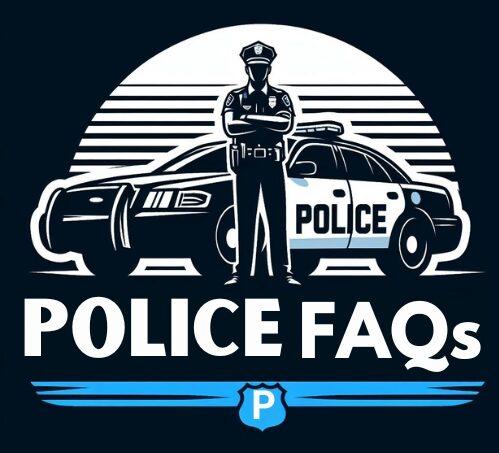
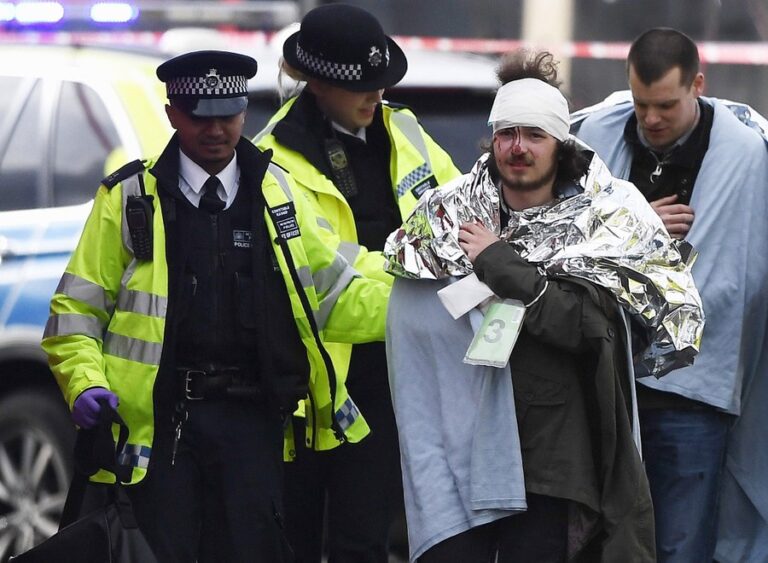

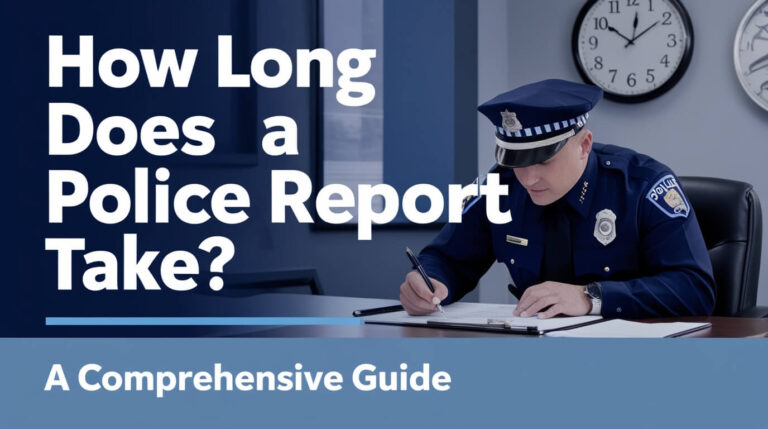
![Do You Need a Degree to Be a Police Officer? [Full Guide] 6 Do You Need a Degree to Be a Police Officer](https://policefaqs.com/wp-content/uploads/2024/07/do-you-need-a-degree-to-be-a-police-officer-768x434.jpg)
